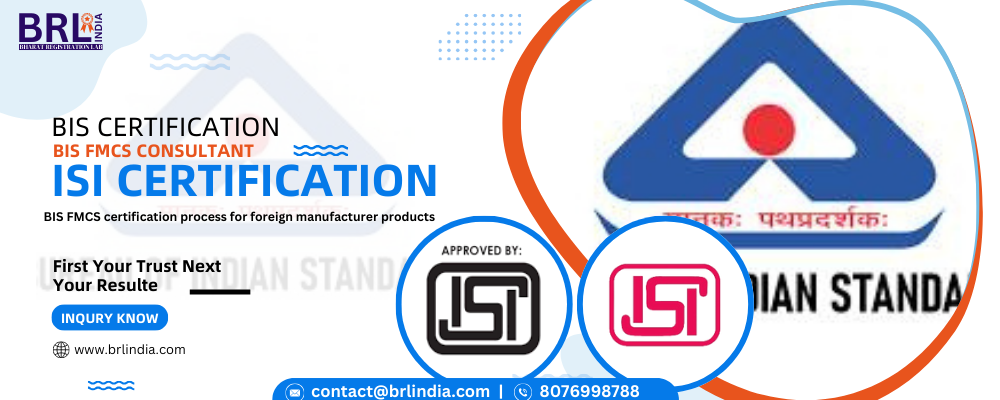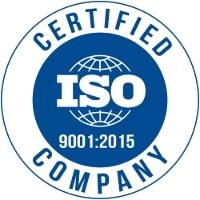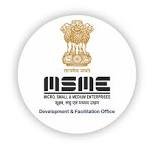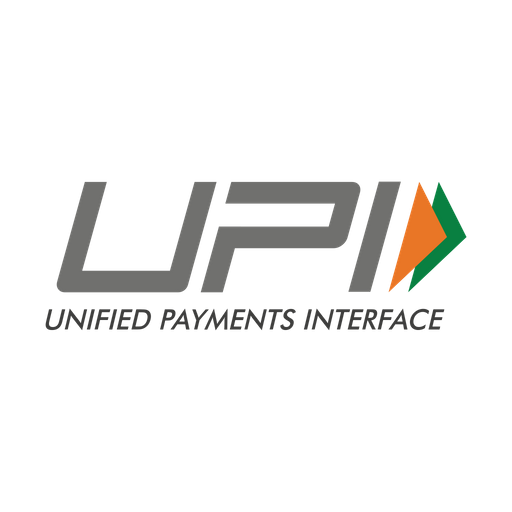
BIS FMCS certification process for foreign manufacturer products
Introduction Of BIS Certification (FMCS Scheme)
India's economy is the fastest growing in the world, and it has the capacity to compete with the largest economies globally. The global economy is now more accessible to trade in areas including manufacturing, services, international product sales, import-export, and more thanks to globalisation. As a result of globalisation, numerous foreign businesses have established various industries, such as manufacturing, in India over the past few decades. The manufacturing sector can increase its market share outside of the nation, add to the economy's foreign exchange reserves, and advance the nation's economic growth. It is regarded as the "growth engine." India has become the most attractive destination for import, investment in the manufacturing sector. Many top brands have decided to invest in India, like Amazon has planned to start electronic manufacturing in India, Samsung Display Noida, which has invested a huge amount in starting its manufacturing etc. In order to boost the growth of the manufacturing sector, the Government of India has offered special incentives.
If we talk about the import, India is one of the biggest hubs for international manufacturer who can export their product to India, BIS FMCS Registration (Foreign Manufacturers Certification Scheme) allows foreign or international organizations to use standard marks, provided they comply with Indian standards.
In India, lots of foreign companies are operating, but every country has set different rules and standards for manufacturing. You cannot launch your product directly into the market without product conformity compliances, testing and marking. For this, you have to follow some procedures, and this is where Foreign Manufacturer Certification Scheme (FMCS) takes place for product certification by the Bureau of Indian Standards under ISI mark Scheme.
What FMCS Certification Scheme
BIS FMCS Certification is imperative for products categorized as mandatory in India. Without this certification, manufacturers face restrictions in selling their products in the Indian market. Thus, obtaining BIS FMCS Certification facilitates seamless access to the Indian market, providing legal benefits and more.
Foreign Manufacturers Certification Scheme (FMCS) is a Scheme operated by the Bureau of Indian Standards since year 2000 under Scheme-I of Schedule-II, BIS Act, 2016 and (Conformity Assessment) Regulations, 2018 for foreign manufacturers. This scheme enables the overseas applicants/manufacturers to use the standard mark, which is also called ISI Mark, to sell their products in India. The foreign manufacturers Certification Department (FMCD) is the only eligible authority that can grant BIS Certificate for import to the foreign manufacturers. The major motive of BIS for granting a Manufacturing certificate to Foreign manufactures is that the public gets good quality, safe, reliable and risk-free products.
BIS FMCS Certificate in India from the FMCD department is meant for the manufacturing units located overseas, and which will undergo for factory audit to determine whether the manufacturer is complying with all the necessary requirements illustrated by BIS. It is also mandatory for foreign applicants to nominate Authorized Indian Representative (AIR).To understand all these steps, let's explore the parameters in detail.
In order to continue exporting and selling their goods in the Indian market, foreign producers must get a BIS Certificate for Import in India under the FMCS Scheme.
Requirements for BIS FMCS Certification
Foreign manufacturers intending to export their products to India must adhere to the following prerequisites
1: Geographical Location: The manufacturing units should be situated outside of India.
2: Acceptance of License Terms & Conditions: The foreign manufacturer or company must acknowledge and comply with the terms and conditions outlined in the license.
3: In-House Testing Facilities: The presence of in-house labs equipped with product testing and quality control personnel is imperative to conduct tests in accordance with Indian Standards Specifications (ISS).
4: Conformance to Indian Standards: Ensure that the products align with the relevant Indian Standards Specifications, demonstrating conformity to the stipulated norms.
5: Acceptance of Inspection and Testing Scheme: Manufacturers should accept the Scheme of Inspection and Testing (SIT) along with the annual marking fee.
6: Availability of Manufacturing Machinery and Testing Facilities: Adequate manufacturing machinery and testing facilities must be available at the factory units to uphold the standards of production and testing.
Types Of Registration Under BIS (Bureau of Indian Standards)
- BIS ISI Certification Certificate
- BIS CRS Registration
- BIS FMCS Certification Scheme
- BIS ECO Mark Certificate
- BIS Hallmark
- BIS WMI Registratin
Documents Required for FMCS ISI Mark Certification
The documentation part under the FMCS BIS Certification scheme of BIS is quite simple as very recently BIS Online application system has been introduced to collect and maintain the records. Following are the essential documents, must be available with the applicant before initiating the project:
- Factory/company registration documents
- Flow chart of manufacturing process
- Manufacturing capabilities in-house and also outsourcing agreement of manufacturing operation, if applicable.
- Adequate facilities for testing
- Quality Control Parameters and their records
- Accept Scheme of Testing & Inspection and Annual Marking fee, laboratory product testing report and other information as per BIS norm and so on. The list of documents is quite tedious and can be obtained from BIS.
Procedure for Obtaining FMCS BIS Certification
To get FMCS BIS Certification, you need to follow the steps as mentioned below:
Step 1: Documentation and Filing: First, our experts will compile all the required Documents, then our experts will file the application and submit it along with the required Documents to BIS online, and also we will send a hardcopy of the application to FMCD Department.
Step 2: Verification: After submitting the application to the BIS Authority, they will verify the application. In case, any Document or test equipment/any other requirement is missing or incomplete, they will connect you over email. If the application is found satisfactory, it will be recorded.
Step 3: Audit of the Factory Premises: Once the above steps are complete, the BIS Officer will conduct an inspection of a factory premises of the applicant on the mutually agreed date. The BIS Officer will check the infrastructure, manufacturing process and also test the product in your in-house lab. Then, they will collect the product sample and send it for testing in an independent lab.
Step 4: Testing of the Product Sample: The collected sample sent to the BIS recognized lab, and the fee for testing will be paid by the applicant.
Step 5: Issuance of License: Once, the BIS officers are satisfied with the inspection report and test report of the product, the applicant should pay a License fee, minimum marking fee, then they will issue the License.
Step 6: Indemnity Bond: After grant of License, the Indemnity Bond will be signed and $10,000 US Dollar Performance Bank Guarantee must be provided to BIS. In case, the applicant failed to submit Performance Bank Guarantee to BIS, the BIS will revoke your License without any intimation.
Timeline For BIS Licence
The average time taken for Grant of Licence is approximately 6 months from the date receipt of complete application and its recording. The rest depends upon the circumstances. It may vary for certain reasons like delay from applicants in response to queries raised, if any, delay in organizing inspection or testing of the sample, remittance of dues, etc.
🌟🌟🌟🌟🌟Thank you for considering BRL India as your trusted compliance partner. We look forward to assisting you soon!🌟🌟🌟🌟🌟









